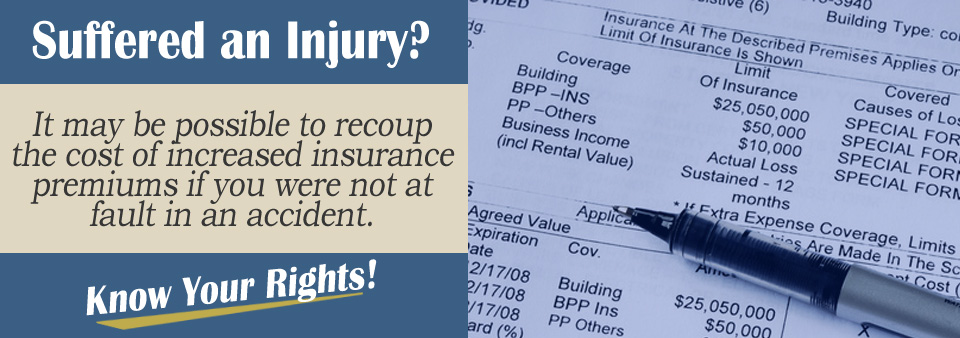Following a car accident, you may find that your insurance premium has increased. If the accident was not your fault, that is hardly fair. Even if the accident was your fault, that still is a bitter pill to swallow.
How can you recoup these losses? Can you recoup these losses?
We have asked attorney, Alaina Sullivan, about this type of situation. Here's her response:
Why Did My Rates Go Up?
Filing an insurance claim will not always increase your insurance premium, but it often does end up that way. Other factors can affect whether your insurance goes up, including your driving record and the number of insurance claims you have had in the past.
The severity of the accident can also play a part in your rates going up, as well. The question is: what can you do once the rates go up?
Accident Forgiveness
Many insurance policies offer accident forgiveness. This feature is available to protect your driving record from being negatively affected in the event you are “at-fault” in a car accident. Essentially it keeps your insurance premiums from going up if you cause an accident.
However, not all insurance policies offer this feature, and it usually only applies if this is your first at-fault accident.
If you have a habit of getting into car accidents where you are at-fault, you likely will not qualify.
Can I Recoup the Increase in My Claim?
If the car accident was your fault, it is highly unlikely you will be able to recoup the increase in insurance premiums in your claim. If your insurance rates increased and you were not at-fault, you could work to potentially off-set that financial burden in your claim.
A personal injury attorney should be able to advise you best on how you can adjust your settlement proposal to offset the increase in cost.
It may not be categorized as “insurance premium increase,” but a specific amount may be slipped into your claim to help you considering the increase in cost.
Keep in mind, however, that this strategy only realistically works if you are the driver who was not at-fault. If you were “at-fault,” you may need to seek other methods of trying to lower your rate. Accident forgiveness, as discussed above, is one such method.
Below are a few additional methods or ideas on lowering your insurance costs following a spike in insurance premiums.
What Else Can I Do?
If you are the at-fault driver and your insurance rates have gone up, you do have other options other than including the cost of the increase in your claim. One option is to adjust your policy. Work with your insurance provider to see what options are available to you. You may be able to raise your deductible amount in order to off-set the increase in your premium.
Similarly, discuss other options that could be available to help you decrease the premium in the future. It may not be an immediate fix, but the company may have programs available to policyholders for situations such as these.
If your insurance company insists on not working with you, you may also consider shopping around for a better policy. Contact other insurance companies to get quotes. This inquiry will not hurt your current bottom line any more than it has already been hit, and you may be able to find yourself a policy that works best for you financially.
Instead of contacting the companies directly, you can also work with an independent insurance agent who is trained in finding the best policy for his or her individual clients according to his or her needs and situations.
Independent insurance agents are not paid by any specific insurance company and hold no allegiance to one policy over another so you should not worry that you will be forced into one type of policy or in working with a specific company.
Contact an Attorney Today
If you have been in a car accident and you have question about how your insurance will be negatively affected, it is always recommended you contact an attorney today to discuss your case if you do not currently have a lawyer or have any questions.
A licensed personal injury attorney will be able to evaluate your case and determine if you have a claim against the other party’s insurance company, and if you can settle for an appropriate amount. To receive the compensation for your medical bills, property damages, and pain and suffering, you should speak with a personal injury attorney in your area today.
